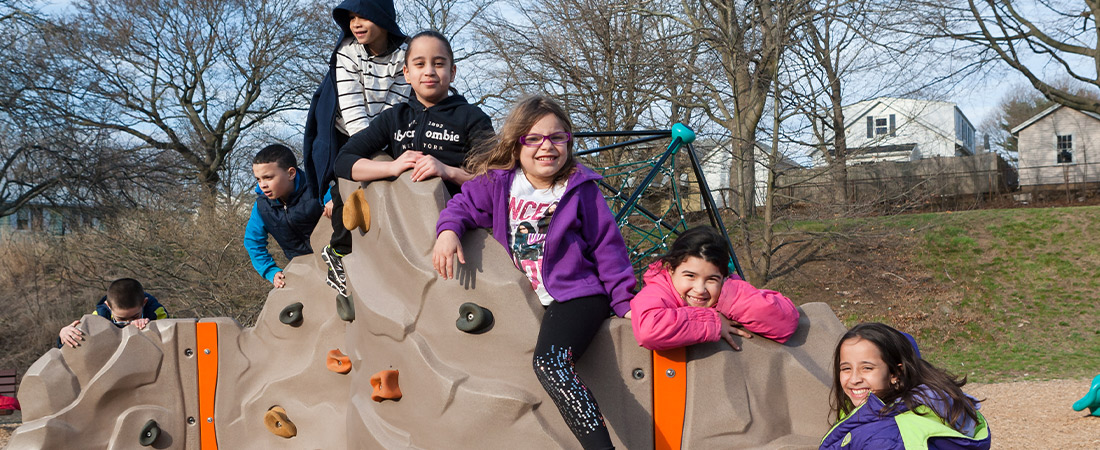
Powerful learning experiences often happen outside of the school day. EDC builds, implements, and evaluates out-of-school and nonformal programs that deliver core civic, educational, and life skills to young people in diverse environments.
In the United States, EDC’s support for out-of-school time (OST) and nonformal learning leverages children’s and youth’s strengths to help them succeed at school, engage in their communities, and lead productive and healthy lives. We design, evaluate, and provide technical assistance on high-quality OST programs that prepare young people for success—whether pursuing social and academic enrichment after school or leaving school and starting a first job.
Internationally, EDC develops and implements programs that support educational and economic opportunities for out-of-school youth. Working within the unique context of each country, we partner with governments, industry, and nongovernmental organizations to provide young people with the skills, knowledge, and opportunities they need to be market-ready and contribute to society.
Related Content
EDC Talks: How Do You Develop High-Quality Out-of-School-Time Programs?
Children can learn a lot from programs that take place outside of school hours.
4 Ways to Strengthen Youth Programs in Conflict and Crisis Areas
Building youth programs in unstable regions can be challenging. Here are four ideas for practitioners.
A Success Story in Senegal
Meet Adama Diedhiou, a participant in EDC’s workforce development program in Senegal.
A Second Chance at School in Mali
In Mali, accelerated education is helping thousands of children get back to school.
3 Ways to Stop the Summer Slide
Want to help kids keep learning this summer? Here are some tips for parents and caregivers.
New Entrepreneurs Launched in Rwanda
EDC’s workforce development efforts in Rwanda are helping young people build the skills for work.
Projects
Resources
Here are a few of our resources on out-of-school learning. To see more, visit our Resources section.
This report details the results of an impact study that was conducted to better understand the contributions of the Mindanao Youth Development (MYDev) project to improving skills and outcomes for o
This toolkit links parents to a wide array of resources—including “fast facts,” fun family activities, and scholarship info—to prepare children and youth to thrive in our wired world and its workplaces.
The proliferation of new technologies is changing the way we live, learn, and work. This white paper examines the complex and interconnected challenges related to workforce development, economics, education, equity, and ethics that our society must address to ensure our workforce is future-ready.
This study evaluated the work of the Akazi Kanoze (AK) Youth Livelihoods Project in Rwanda to support youth entrepreneurs. The report presents findings on the effectiveness of AK’s Entrepreneurshi
Honduran youths have the ability to generate strategies that can solve problems in the national context.
Drawing on its extensive work in fragile environments, EDC developed this set of case studies that chronicles best practices, lessons learned, and stories of success.
Transforming the Education Workforce lays out three evidence-based visions for strengthening the education workforce, creating more collaborative learning teams, and transforming education systems into learning systems.
Focusing on eight key sectors, the report identifies sector trends, education and employment gaps, available job roles, and examines stakeholder dynamics.
The Somali Interactive Radio Instruction Program (SIRIP) advances stabilization in Somalia by delivering education in a precarious situation and by giving children the capabilities they will need t
EDC conducted a research study in the Democratic Republic of Congo to test the effects of teacher knowledge and practice on student learning.
